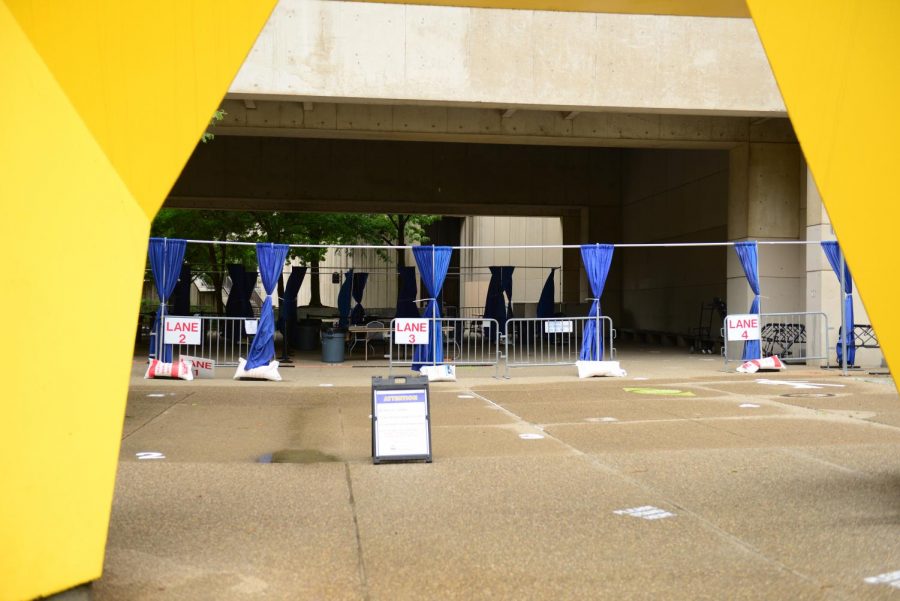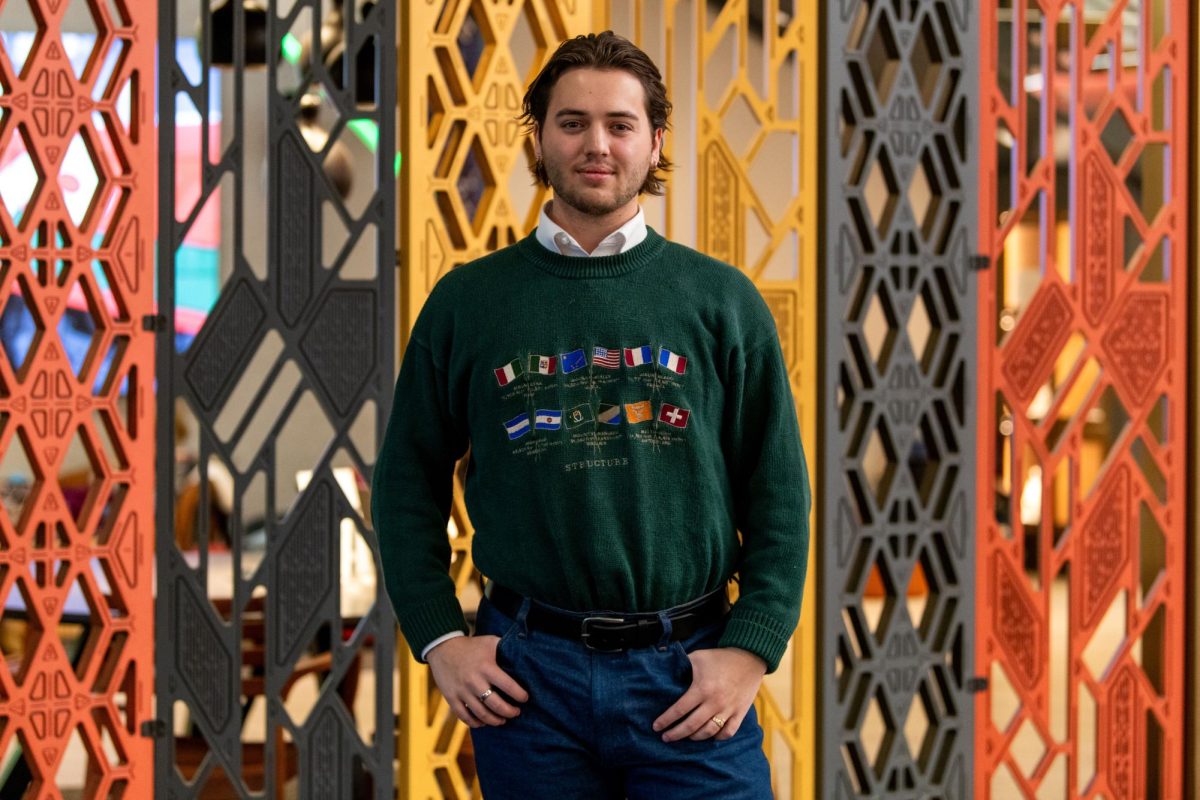Pitt adds 14 COVID-19 cases since Monday
Wu Caiyi | Senior Staff Photographer
Pitt’s outdoor COVID-19 testing site is located outside Posvar Hall.
September 25, 2020
Pitt added 14 new COVID-19 cases, composed of entirely students, between Monday and Thursday, continuing a recent trend of case reports in the low double-digits. This follows an increase of 13 new cases, composed of 12 students and one employee, between last Friday and Monday.
This is the fourth case report since more classes moved in person last Monday. Provost Ann Cudd announced Sept. 9 that faculty members can apply to teach their classes in person if there is a “definable benefit” to in-person instruction and if an instructor’s dean or regional campus president approves teaching plans. Pitt has been using the new Flex@Pitt teaching model, which allows students to experience classes “in person, remotely, synchronously or asynchronously.”
The University has had 265 students and 30 employees test positive since June 26, with 214 students and 29 employees recovered thus far. One of the last seven days has seen no new student cases reported, and six days have seen single-digit increases in student cases, according to data reported by Pitt.
Chancellor Patrick Gallagher said last Thursday that he expects the Flex@Pitt model to continue into the spring semester due to the ongoing COVID-19 pandemic. He also said it’s likely that next semester’s schedule will be compressed similar to the fall so there aren’t vacations where people leave and come back to campus.
“The planning context for the spring is that the virus is still with us,” Gallagher said. “I don’t think we’re looking at a significant change in the framework, until there’s a significant change in the pandemic.”
Pitt’s COVID-19 Medical Response Office said as cold and flu season approaches and the weather gets colder, it “can’t predict how these changes will impact our campuses, so we must remain vigilant.”
“Your efforts to wear your face covering, stay informed, hold each other accountable and adhere to health and safety guidelines is helping to keep our numbers steady,” the office said. “It’s vital — across all campuses — to keep new close contacts to an absolute minimum.”
There are 51 students currently in isolation housing, which is reserved for those who have either a confirmed or suspected COVID-19 infection. Pitt has a capacity of 179 beds, with the ability to add 20 more.
Pitt has implemented a systematic, random testing strategy, where it has said it will test several hundred students each week on Mondays and Wednesdays. Out of 245 students without COVID-19 symptoms randomly tested on Monday, there was one positive case, not changing Pitt’s total prevalence rate of 0.36%.
Pitt spokesperson Pat McMahon did not immediately respond to a request for comment about why no random testing data for Wednesday was available, or if random testing did occur Wednesday.
The University has implemented a variety of new policies due to the pandemic, though some community members question whether the safeguards are sufficient. All students were asked to shelter in place for seven days before and after arriving in Oakland, though officials have said Pitt will not track whether or not students have completed the shelter-in-place period. Pitt has also planned testing of students to monitor the virus’s spread, required students, faculty and staff to complete COVID-19 training and imposed strict penalties for violations of health guidelines.
Kenyon Bonner, the vice provost and dean of students, said student organizations who host a party or event can face suspension, and students hosting large parties can be suspended. Students living on campus who attend large parties can have their housing suspended for the semester, and students living off campus can be switched to persona non grata status, preventing them from entering University buildings or property.








